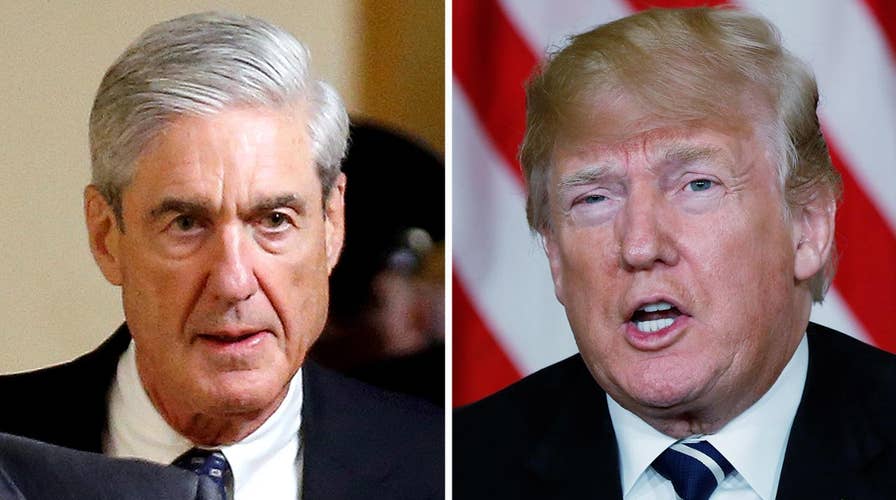Kim Strassel on how Trump can reset the Russia investigation
Wall Street Journal Editorial Board member Kim Strassel suggests two 'bold' steps the president should take in response to Special Counsel Robert Mueller's probe.
President Trump vociferously protests his innocence as Robert Mueller finishes the first year of his Russia investigation. Still, the endless Tweet bleats of “PHONY” and “WITCH HUNT” are doing little to help his cause.
The question is why this high-energy president seems to have fallen for the media claim that his only proactive course is to fire Mr. Mueller. It isn’t. There are two very bold actions the Trump White House could take to reset the Russia dynamic. Both would aid Mr. Trump’s presidency and serve the executive branch and the public in the longer term.
The first is an abrupt overhaul of the president’s legal team and strategy. Mr. Trump has talented lawyers, but not ones skilled at confronting the threat at hand. They continue to fret over his personal liability, when the real threat is to the Constitution—to this presidency and every future one. Mr. Mueller is by all accounts now focused on obstruction of justice. Mr. Trump needs constitutional powerhouses who can swiftly take that issue off the table.
Constitutional lawyer David Rivkin in December argued on these pages that a president’s exercise of the powers of his office cannot legitimately be construed as obstruction of justice. Among those powers are the right to direct law enforcement and to fire executive-branch appointees at will. Whether or not Mr. Trump’s conversations with former Federal Bureau of Investigation Director James Comey, or his firing of Mr. Comey, were wise, Mr. Trump was exercising rightful powers. If Congress believes he abused his office, it has the power to impeach. If Congress had the authority to criminalize the exercise of presidential power, or the judiciary to question a president’s motives, the separation of powers would be severely threatened.
Keep reading Kimberley Strassel's column in the Wall Street Journal.

